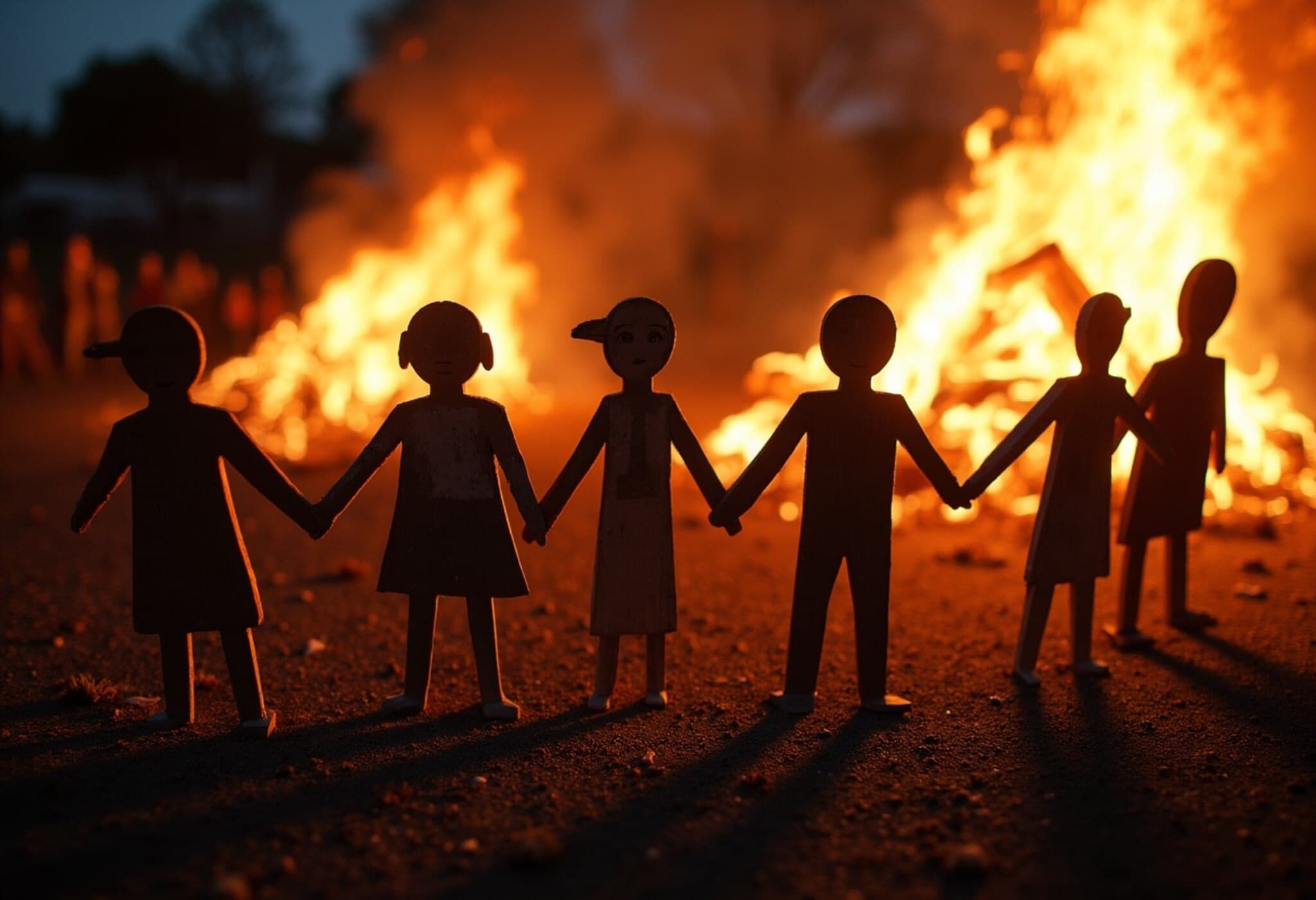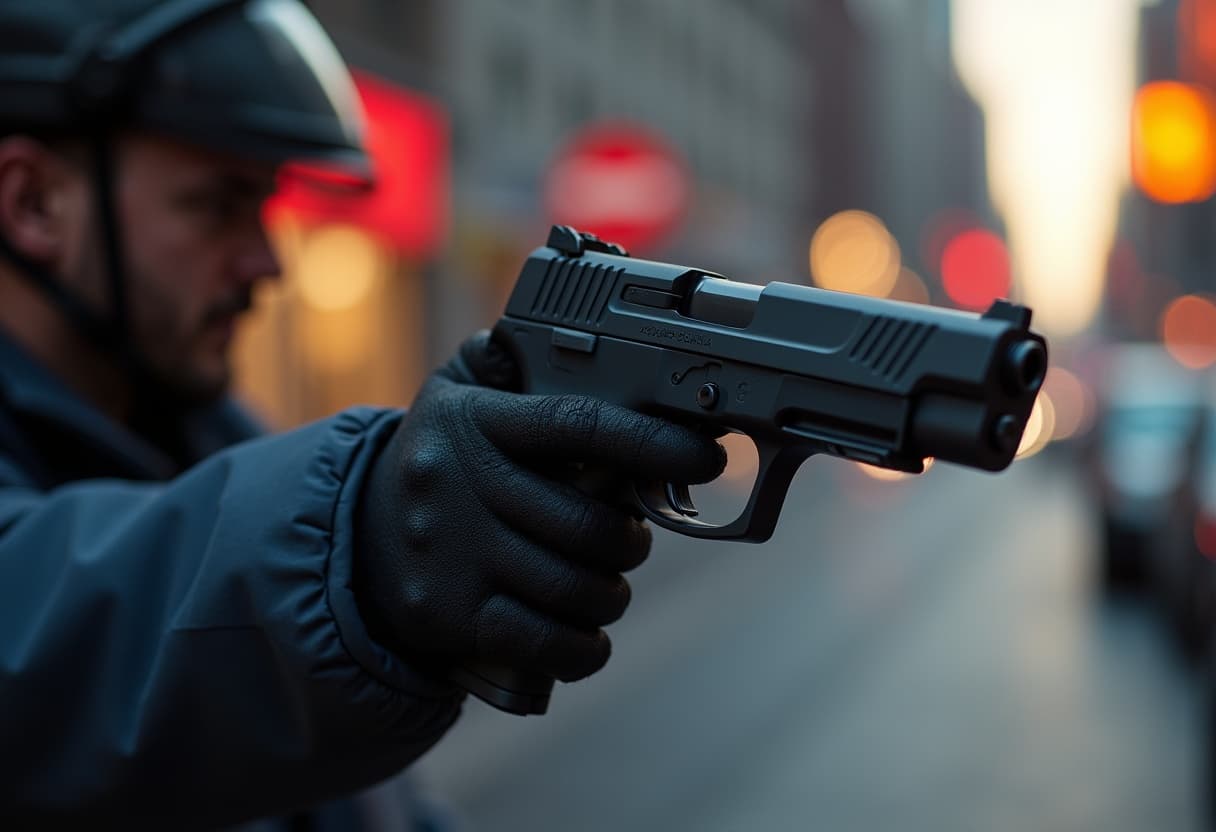Migrant Boat Effigies on Northern Ireland Bonfire Under Hate Crime Investigation
In the quiet village of Moygashel, about 65 kilometres west of Belfast, a bonfire traditionally associated with sectarian historic commemorations has ignited more than just flames—it has sparked a fresh controversy and a police hate crime investigation. Atop the towering stack of wooden pallets, effigies depicting migrants in a lifeboat were burned alongside banners reading “Stop the Boats” and “Veterans before Refugees.”
Context of July 12 Bonfires and Loyalist Traditions
Each year, loyalist communities across Northern Ireland mark July 12th to commemorate the Battle of the Boyne, a 1690 conflict symbolic of Protestant William of Orange’s victory over Catholic King James II. These large-scale bonfires are more than just flames—they are charged cultural expressions deeply intertwined with identity, history, and politics. Effigies targeting Catholic Irish politicians and provocative slogans have been commonplace, reflecting ongoing communal divisions.
Controversy Surrounding the Migrant Effigies
The inclusion of eight life-jacketed migrant figures in a dinghy alongside an Irish flag differs from typical political targets and adds a new dimension to the longstanding tradition. The signage explicitly opposing immigration policies—"Stop the Boats"—has raised significant alarm and has been reported to local police by concerned members of the public.
Colm Gildernew, a Sinn Féin assembly member, condemned the display as a "deplorable" and "clear incitement to hatred," urging authorities to remove the effigies. Meanwhile, Ulster Unionist Party leader and Northern Ireland health minister Mike Nesbitt denounced the spectacle as "sickening" and out of step with cultural celebration values. Even the Democratic Unionist Party, a major pro-British unionist party, deemed the placement inappropriate.
Loyalist Defense and Complexity of Political Expression
Conversely, loyalist activist Jamie Bryson defended the bonfire elements as legitimate political expression, citing a European Court of Human Rights ruling that permits burning effigies as part of protest. Bryson highlighted a perceived double standard, referencing other artistic expressions like the controversial rap group Kneecap, which supports a united Ireland, that have been defended on artistic grounds.
This defense underlines the fine line between cultural tradition, political protest, and hate expression. It also illustrates how Northern Ireland’s fragile peace and communal tensions frequently resurface in symbolic acts during the summer marching season.
Historical and Social Significance Amidst Rising Anti-Immigrant Sentiment
The timing of the incident is critical. Recent months have seen spikes in anti-immigrant rhetoric and sporadic violence in the region. For example, in June, riotous outbreaks in Ballymena erupted following unverified reports involving migrants, exacerbating fears and distrust toward immigrant communities.
July 12 celebrations themselves, often rebranded as 'Orangefest' by supporters, are both cherished cultural events and flashpoints capable of inciting unrest, despite the peace largely restored since the 1998 Good Friday Agreement.
Looking Ahead: The Challenge of Balancing Tradition and Inclusivity
This episode invites critical reflection on how Northern Ireland can honor its historical commemorations without permitting the propagation of hate or exclusionary messages. It raises pressing questions:
- How can communities reconcile traditional loyalty expressions with modern multicultural realities?
- What legal frameworks exist to delineate legitimate protest from hate speech, especially in deeply divided societies?
- How might policymakers and community leaders foster inclusive narratives that respect identity without marginalizing vulnerable groups like migrants and refugees?
The police investigation into the hate crime allegations marks an important step in addressing these tensions. However, the broader societal challenge remains to cultivate dialogue and understanding amid Northern Ireland’s complex socio-political landscape.
Expert Commentary
Experts in conflict resolution emphasize that symbolic acts, such as bonfires and effigy burning, hold deep emotional resonance and can either fuel division or foster empathy when contextualized responsibly. Legal analysts point out that balancing freedom of expression with hate crime prevention is delicate but essential to safeguarding democratic values.
In the American context, this resonates with ongoing debates over the boundaries of political protest and the rise of anti-immigrant sentiments nationally, highlighting the importance of vigilant community engagement and inclusive policy frameworks.
Editor’s Note
The ‘migrant boat bonfire’ in Moygashel is more than a local controversy; it is a poignant symbol of the challenges facing post-conflict societies grappling with identity, migration, and historical memory. As Northern Ireland navigates these turbulent waters, the path forward lies in reconciling pride in heritage with respect for diversity, ensuring cultural traditions unite rather than divide.
Readers are encouraged to consider: How can community celebrations evolve to reflect contemporary values while honoring historical significance? What role should law enforcement and policymakers play in mediating between freedom of expression and protection against hate crimes? This incident spotlights the ongoing balancing act in pluralistic democracies worldwide.











